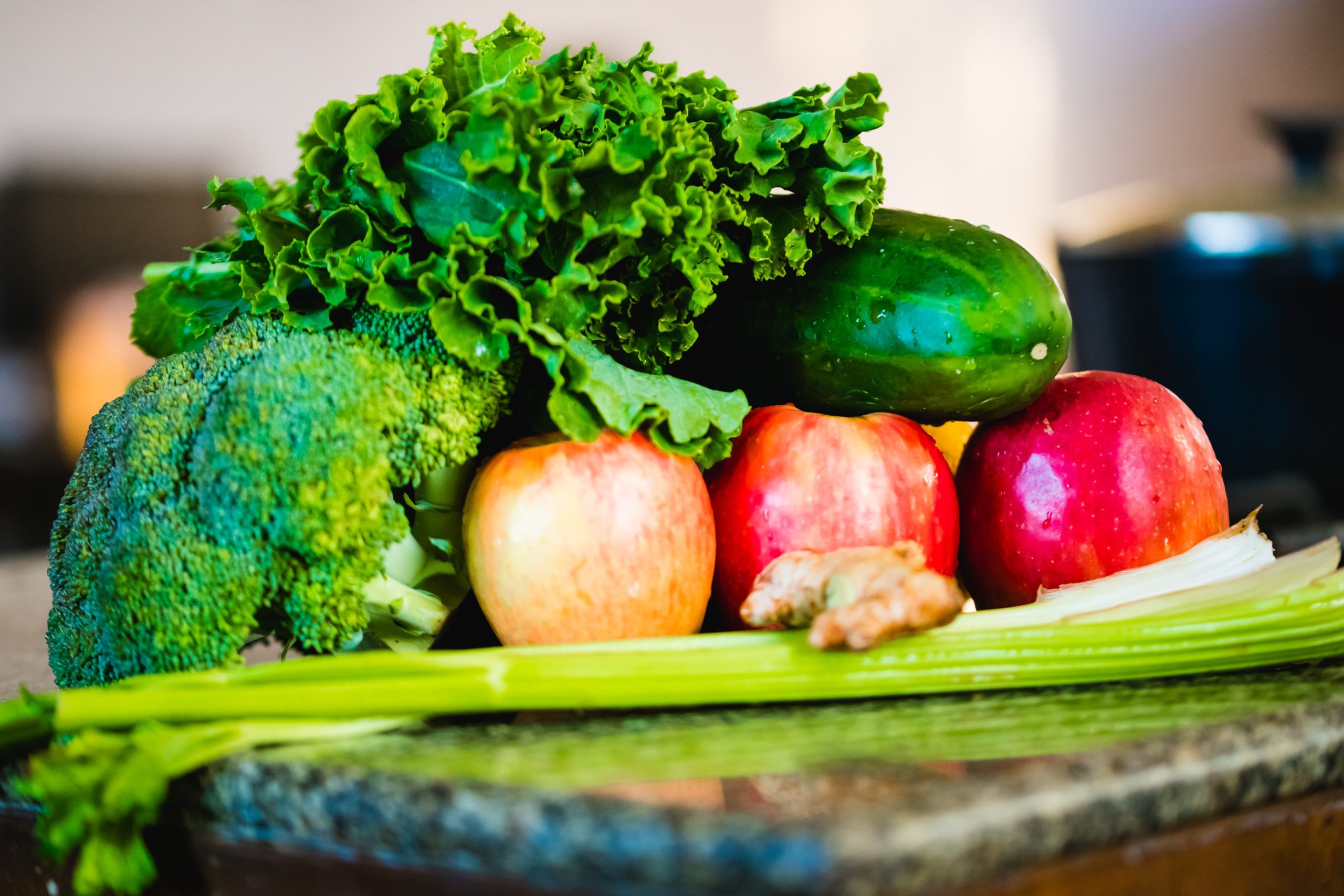Reducing inflammation to fight infection
Reducing inflammation in the body can help you cope with and ward off infections. Too much inflammation can result in an elevation in interleukin-6 (IL-6), an inflammatory cytokine [7]. Want to decrease your inflammation? Here are some research-backed ways to reduce levels of inflammatory cytokines.
So, if you have raised IL-6 levels, what can you do? Here are a few evidence-based foods, supplements and lifestyle hacks for reducing IL-6 and inflammation:
Top 3 Foods to Reduce Inflammation:
Green tea
Matcha latte? Yes, please! A polyphenol found in green tea called EGCG has illustrated its effects on reducing inflammatory cytokines, including IL-6 [3].
Rosemary
A phenolic compound called rosmarinic acid found in rosemary has shown a reduction in IL-6 levels [2]. The best ways to incorporate more rosemary in your diet are really simple, you can add them to bone broths, soups, marinades and even herbal teas.
Turmeric
Watch out matcha, here come turmeric lattes! A constituent called curcumin found in turmeric has illustrated its efficacy in reducing IL-6 [8]. Some other great ways to include turmeric into your diet are adding them into curries, juices and smoothies. Curcumin also becomes much more bioavailable (absorbable) in the presence of fat and pepper, so get crackin’.
Top 3 Supplements Inflammation:
Cod liver oil
A great way to get vitamin A and D, when the supplement is a clean practitioner-only brand. Cod liver oil has been shown in studies to reduce inflammatory cytokine and C-reactive-protein (CRP) [4].
Andrographis
This is commonly known as an anti-viral herb, used by naturopaths and TCM practitioners, but it also illustrates anti-inflammatory effects [5]. Visit your naturopath to see if Andrographis is a herb suited for you.
Quercetin
This is a flavonoid found in many foods as well as in a supplement. Quercetin is commonly known for reducing histamine, but it has also demonstrated its ability to reduce IL-6 [1]. Another way to increase quercetin is by adding onion skin to bone broths and stocks.
Top 3 Lifestyle Hacks Inflammation:
Sleep hygiene
By cleaning up your sleep routine, melatonin will increase at night, which is an important hormone for a myriad of reasons, including the regulation of the immune system and inflammatory response [6]. A great way to enhance sleep is by getting sunlight within the first hour upon waking (doesn’t matter if it’s overcast) and by wearing bluelight blocking glasses three hours before sleep.
Reduce sugar
You’re sweet enough, honey! Reducing refined sugar is important for so many reasons – inflammation included. Instead of grabbing that pastry for an afternoon snack, try replacing it with an organic apple (think quercetin) and a handful of walnuts for satiety.
Stress reduction
Stress is a component involved in pretty much every disease picture. A great way to reduce stress and set yourself up for a good day is to go on a morning walk. Not only does going outside and moving enhance your mood, but the sunlight exposure also helps to set you up for a great night’s sleep (double-win!).
As you can see there are many practical ways to help control inflammation in terms of diet, lifestyle and herbs/supplements. Which one of the above are you going to try first?
For more information on the foods, supplements and lifestyle tips explained in this article, see one of our practitioners today.
By Fallon Cashell
References
- Cheng, S. C., Huang, W. C., S Pang, J. H., Wu, Y. H., & Cheng, C. Y. (2019). Quercetin Inhibits the Production of IL-1β-Induced Inflammatory Cytokines and Chemokines in ARPE-19 Cells via the MAPK and NF-κB Signaling Pathways. International journal of molecular sciences, 20(12), 2957. https://doi.org/10.3390/ijms20122957
- Jin, B. R., Chung, K. S., Cheon, S. Y., Lee, M., Hwang, S., Noh Hwang, S., Rhee, K. J., & An, H. J. (2017). Rosmarinic acid suppresses colonic inflammation in dextran sulphate sodium (DSS)-induced mice via dual inhibition of NF-κB and STAT3 activation. Scientific reports, 7, 46252. https://doi.org/10.1038/srep46252
- Prasanth, M. I., Sivamaruthi, B. S., Chaiyasut, C., & Tencomnao, T. (2019). A review of the role of green tea (Camellia sinensis) in antiphotoaging, stress resistance, neuroprotection, and autophagy. Nutrients, 11(2), 474.
- Sherif, I. O., & Al-Gayyar, M. M. (2015). Cod liver oil in sodium nitrite induced hepatic injury: does it have a potential protective effect?. Redox report : communications in free radical research, 20(1), 11–16. https://doi.org/10.1179/1351000214Y.0000000097
- Uttekar, M. M., Das, T., Pawar, R. S., Bhandari, B., Menon, V., Gupta, S. K., & Bhat, S. V. (2012). Anti-HIV activity of semisynthetic derivatives of andrographolide and computational study of HIV-1 gp120 protein binding. European journal of medicinal chemistry, 56, 368-374.
- Yu, G. M., Kubota, H., Okita, M., & Maeda, T. (2017). The anti-inflammatory and antioxidant effects of melatonin on LPS-stimulated bovine mammary epithelial cells. PloS one, 12(5), e0178525. https://doi.org/10.1371/journal.pone.0178525
- Zhang, C., Wu, Z., Li, J. W., Zhao, H., & Wang, G. Q. (2020). The cytokine release syndrome (CRS) of severe COVID-19 and Interleukin-6 receptor (IL-6R) antagonist Tocilizumab may be the key to reduce the mortality. International Journal of Antimicrobial Agents, 105954.
- Zhang, Y., Liang, D., Dong, L., Ge, X., Xu, F., Chen, W., Dai, Y., Li, H., Zou, P., Yang, S., & Liang, G. (2015). Anti-inflammatory effects of novel curcumin analogs in experimental acute lung injury. Respiratory research, 16(1), 43. https://doi.org/10.1186/s12931-015-0199-1


